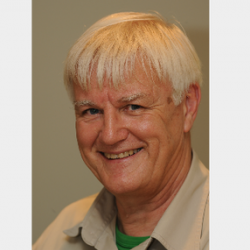Biography
Michael grew up on a council estate in rural Norfolk. He was the first member of his family to pursue higher (or indeed secondary) education, and the first pupil from his school to go to Oxford, where he began his undergraduate career as a lawyer. He then worked for the Survey Research Centre at the London School of Economics. Subsequently, with funding from the Joseph Rowntree Trust, he directed a successful planning law reform campaign, and for a time he was Will Hutton’s gardener. Later, at Westminster, he was employed as a researcher on education and health. While in a government-sponsored post as parliamentary liaison officer for the haemoglobinopathy advocacy groups, he became one of the founders of the group now known as the Genetic Alliance. Before arriving in Cambridge as a mature postgraduate student he was active in local politics in north London, taking particular interest in housing and the built environment. For his ESRC-sponsored doctoral enquiry into prisoners’ reading attainments he spent over two hundred days—but no nights—behind bars; the enquiry was supplemented by two bolt-on studies commissioned by the Home Office. After graduation, he worked for Nacro’s Crime and Social Policy section, beginning with an evaluation of ten ‘community safety’ schemes in an inner-London borough. In recent years, he has taught courses on crime and deviance, sentencing policy, statistical analysis and survey research methods. He also maintains interests in neuroscience and moral philosophy.
Michael has supervised MPhil dissertations on various criminological topics, including drug policy in The Netherlands, the surveillance of political protestors, police corruption, terrorism, hate crime with reference to both ethnic and sexual minorities, juror decision-making, prosecutorial practice in Ghana, child witnesses in criminal trials, white-collar crime, muti-related murder in South Africa, sex offender registration, the August 2011 riots and moral panic in England, the punishment of psychopaths, the death penalty in Malaysia, the legal representation of mentally-ill offenders, the experiences of female officers in male prisons, ‘stop and frisk’ in New York, the case for differentiated treatment of older prisoners, Foucauldian perspectives on sexual violence, J. S. Mill’s harm principle, the use of synthetic cannabinoid receptor agonists in prisons, and the criminalisation of assisted dying in Europe.
Over the past ten years, three of Michael’s supervisees have been awarded the Institute’s Manuel López-Rey Graduate Prize.
Some of his writings can be found on the Academia.edu website.

